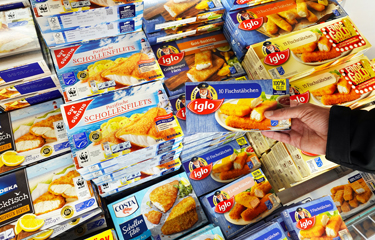Nomad pledges operations, supply chain emission cuts

Feltham, United Kingdom-headquartered frozen foods company Nomad Foods has announced plans to significantly reduce its greenhouse gas emissions across its operations and supply chain in line with science-based targets.
In addition to reducing its emissions in areas such as purchased goods, transportation, and distribution by 25 percent over the next four years, the Birds Eye, Findus, Iglo, Aunt Bessie's, and Goodfella's brand owner will also ensure 75 percent of its top-emitting suppliers develop their own science-based targets by 2025.
The new targets, which are consistent with reductions required to keep global warming to 1.5 degrees Celsius as outlined by the Paris Climate Agreement, have been approved by the Science Based Targets initiative (SBTi).
Nomad has also signed up to the United Nations’ Race To Zero, a global campaign to rally climate leadership from businesses, cities, regions, universities, and investors. Participants collectively cover close to 25 percent of the world’s carbon emissions and more than 50 percent of the global GDP.
“As attention focuses on the COP 26 Climate Change Conference in November, we must all step up to the challenge of delivering a net-zero economy,” Nomad Foods CEO Stéfan Descheemaeker said.
Nomad’s supply chain, which spans from fisheries to farming, accounts for almost 80 percent of its greenhouse gas emissions.
“By focusing first on our 2025 milestones, we will almost halve emissions per ton of product and ensure the top 75 percent of our suppliers by emissions have science-based reduction targets in place. This will ensure we reach net-zero well before 2050, as we deliver on our promise of long-term sustainable growth for shareholders,” Descheemaeker said.
Frozen fish processor Espersen, which has supplied Nomad Foods for more than 20 years, welcomed the move.
“Environment and climate have always been an important part of Espersen's sustainability agenda throughout the value chain. The fact that Nomad Foods’ climate goals have been approved by the Science-Based Targets initiative sends a clear signal to us as a strategic supplier to reduce our own emissions further. In addition, we will also urge our producers to reduce their climate impact,” Espersen CEO Klaus Beyer Nielsen said.
In 2020, Nomad reduced its carbon emissions per ton of finished goods by more than 20 percent and absolute emissions by almost 11 percent.
Photo courtesy of defotoberg/Shutterstock






Share